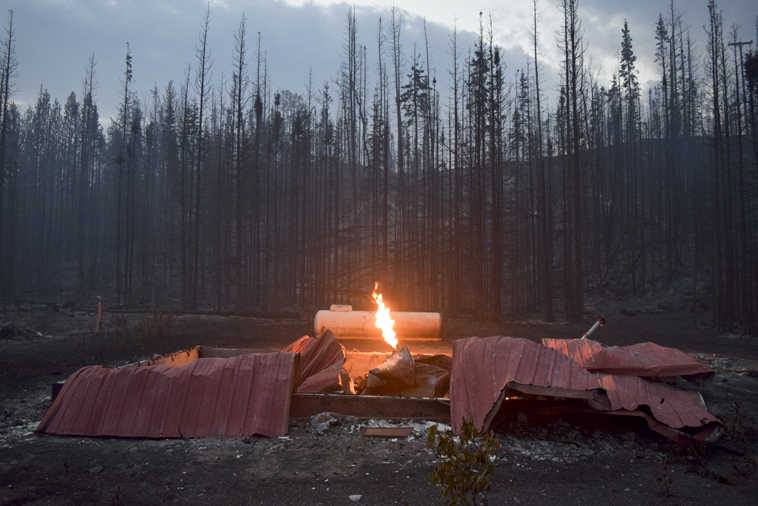Families affected by area wildfires will have the opportunity to apply for state assistance this month.
Jeremy Zidek with the Alaska Division of Homeland Security and Emergency Management said a disaster assistance center will be set up in the Sterling Elementary School July 7-8. This is where families can apply for state assistance.
“It’s an opportunity for people to go in, actually sit down with someone, and fill out an application,” Zidek said.
Two Individual Assistance programs, Individual Family Grants and Temporary Housing, have been approved by Gov. Bill Walker in the wake of statewide wildfires, one of which consumed 11 peninsula structures. The Individual Assistance programs are enacted by the governor when a state of disaster is declared for an area, according to an Alaska Division of Homeland Security and Emergency Management fact sheet. Local government leaders must make a disaster assistance request to receive aid.
Individual Family Grants are available for those who have sustained significant damage to a primary home, lost essential personal property or primary transportation or require funds for medical, dental or funeral services. The Individual Family Grant program can provide up to $16,450 for those who qualify.
The Temporary Housing Program can provide families in need with up to 18 months of rental assistance for homeowners, or repair assistance.
Zidek said that while these two programs are mostly geared toward those who have suffered damages to their primary dwelling, no one who has been affected by area fires is discouraged from applying for assistance. While the programs are meant to help those who have lost their primary homes, those who experienced damage to summer or other homes can sometimes apply for assistance. Even if someone is not qualified for the state assistance, Zidek said it is important to apply anyway because outside organizations are poised to step in where the state cannot.
“We have a lot of government partners that will take a look at it,” Zidek said. “There’s also other organizations that can provide home furnishings, bedding (and) clothing replacement.”
Zidek said there have been two applications stemming from the Card Street fire, and 45 applications statewide.
Greg Roberts and his family recently moved to Eagle River, but the cabin they’ve been working on since 1995 was lost to the Card Street fire. Roberts said he has applied for state assistance, and is waiting for the application to be reviewed.
Roberts said he had plans to make the cabin, located on Cottontree Lane in the Kenai Keys, into his retirement home. His family spent a lot of time there each summer, he said.
“Even if I just got a loan or help with a loan, that would be great,” Roberts said. “That’s basically the cabin we built from scratch when (our son) was little.”
Once an application for assistance has been processed, Zidek said verifiers will visit the property with the homeowner to assess the damage, even if cleanup has already begun.
“We certainly don’t want anyone to wait for us to get out there to … begin their recovery process,” Zidek said. “If they can take pictures, make good lists of what was damaged, really document the damage, that is what we need for the program.”
Roberts has already made progress cleaning up the remains of his two-story log cabin, vehicles, boats, fishing gear and other remnants of the life he has built living in Alaska since 1971.
In all, Roberts estimated he will be out about $250,000 between the loss of property and the cost to rebuild.
The Kenai Peninsula Borough is another entity that can help with cleanup and recovery.
Paul Ostrander, chief of staff for the Kenai Peninsula Borough Mayor, said Mayor Mike Navarre authorized the borough to waive the tipping fees for Roberts’ cleaning expenses.
“(The mayor) has the ability to waive that in certain instances,” Ostrander said, explaining that Roberts qualified under a hardship waiver.
The disaster assistance center will run from 10 a.m. to 7 p.m. July 7-8.
Those interested in receiving assistance can fill out an application at the disaster assistance center, or online at ready.alaska.gov. The deadline to apply is Aug. 18.
“It was pretty simple,” Roberts said. “You don’t know until you fill it out.”
Reach Megan Pacer at megan.pacer@peninsulaclarion.com.

